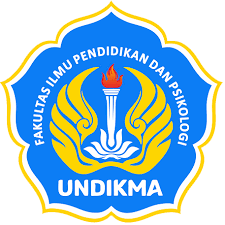Peningkatan Kemampuan Guru Kimia dalam Mengembangkan Asesmen Terintegrasi (Konsep, Berpikir HOTs, Teknologi) pada Materi Termodinamika I
Abstract
The purpose of this study is to improve the ability of chemistry teachers in understanding integrated assessments. The study used a mixed method Embedded Design Experimental. The ability of chemistry teachers to design and implement integrated assessments with innovative learning models, problem-solving thinking skills, and technological skills is still a challenge, especially abstract materials such as the laws of Thermodynamics (energy and its changes). Previously, observations were conducted based on questionnaires distributed to participants to determine the level of understanding of participants in making integrated assessments. Participants' responses to ignorance on integrated assessments reached 80%. Therefore, the MER approach was carried out to improve the quality of knowledge on integrated assessments. Based on the results of the implementation, the average N-gain was in the medium and high categories (conceptual understanding 0.69, problem-solving thinking skills 0.62, and PhET skills 0.71), this indicates an increase in quality. Through the ANOVA test, the acquisition of conceptual understanding scores with (p <0.001) showed a significant difference in participants who obtained the medium and high categories. Meanwhile, there were no significant differences in problem-solving thinking skills (p = 0.024) and PhET technology skills (p = 0.071) across all participants. This study involved 20 chemistry teachers from Maluku and Papua. Participants' responses to the assessment implementation were 80% good and 20% very good.
References
Agustina, T. W., Rustaman, N. Y., Rustaman, N. Y., & Rusdiana, D. (2017). Assessment in Science Education.
Azizah, H. N., Studi, P., Fisika, P., Indonesia, U. P., Efendi, R., Fisika, D. P., Indonesia, U. P., Karim, S., Fisika, D. P., Indonesia, U. P., & Kognitif, K. (2020). Efektivitas integrasi asesmen formatif concept checks pada pembelajaran fisika dalam meningkatkan kemampuan kognitif siswa SMA. 7(2), 78–84. https://doi.org/10.12928/jrkpf.v7i2.17284
Chasanah, N., Widodo, W., & Suprapto, N. (2022). Pengembangan Instrumen Asesmen Literasi Sains Untuk Mendeskripsikan Profil Peserta Didik. 6(2), 474–483.
Creswell, B. J. W., Piano, V. L., & Published, C. (2007). Designing and Conducting Mixed Methods Research Health Promotion – Principles and practice in the Australian context. 6405. https://doi.org/10.1111/j.1753-6405.2007.00096.x
Damopolii, M. (2022). Asesmen dalam pembelajaran: suatu kajian teoretik.
Doloksaribu, F. E., The, T., Doloksaribu, F. E., & Triwiyono, T. (2021). The Reconstruction Model of Science Learning based PhET-Problem Solving To cite this article : The Reconstruction Model of Science Learning based PhET-Problem Solving. International Journal on Studies in Education, 3(1). Istes web
Doloksaribu, F. E., & Triwiyono, T. (2021). PENINGKATAN PEMAHAMAN KONSEP SISWA MELALUI MODEL PEMBELAJARAN IPA BERBASIS PHYSICS EDUCATION TECHNOLOGY-PROBLEM SOLVING. EDUSAINS, 13(1), 46–55. https://doi.org/10.15408/es.v13i1.20003
Duit, R., Gropengießer, H., & Kattmann, U. (2012). 2 . THE MODEL OF EDUCATIONAL RECONSTRUCTION – A FRAMEWORK FOR IMPROVING TEACHING AND LEARNING SCIENCE 1. Science Education Research and Practice in Europe: Retrospective and Prospective, 13–14.
Hera A, Zulhijrah,Nabila j, S. (2023). 1 2 3 4. 09, 2986–2995.
Inovatif, P., Abad, D. I., Pembelajaran, M., Bermakna, Y., & Berkelanjutan, D. A. N. (2025). Pendidikan inovatif di abad 21: mewujudkan pembelajaran yang bermakna dan berkelanjutan. 1, 33–38.
Lucia Giammateo, A. obaya. (2015). Assessing Chemistry Laboratory Skills Through a. 103–109.
Maemonah, M. (2022). Asesmen Pembelajaran (Issue June 2018).
Marzuki, I., Soraya, F., Pascasarjana, P., Pendidikan, M., Islam, A., & Muhammadiyah, U. (2024). Transformasi Model Evaluasi Pembelajaran Berbasis Teknologi Di Era Society. 6(2), 167–179.
Mawaddah, F. S. (2023). Assesmen dalam Kurikulum Merdeka Belajar. 3(1), 8–13.
Muhamad Z.Mansyur;Elfira Ramadan;ThomsonSiallagan;Rini, N.Astuti;Sukarman Purba;Ardhariksa Z Kurniullah;Ritnawati; Hani Subakti; Alimah Nuryanti, C. P. J. S. M. F. K. U. A. (2024). Belajar dan Pembelajaran di Abad 21 (Issue March).
Munazar, T. H., & Qomarudin, A. (n.d.). ASPEK PENGETAHUAN BERBASIS TEKNOLOGI. 3(April 2021), 34–59.
Mustopa, A., Basri, H., & Barlian, U. C. (2021). Analisis standar penilaian pendidikan. 09(01), 24–29.
Nursa’adah, E., Liliasari, Mudzakir, A., & Barke, H. D. (2018). The model of educational reconstruction: Students’ conceptual knowledge on solid state chemistry domain. Jurnal Pendidikan IPA Indonesia, 7(2), 193–203. https://doi.org/10.15294/jpii.v7i2.14297
Opateye, J. A., Raphael, D., & Ewim, E. (2021). Assessment for Learning and Feedback in Chemistry : A Case for Employing Information and Communication Technology Tools. 3(2), 18–27.
Pasaribu, M. Y., Timur, J., Didik, P., Topik, P., & Anaerob, R. (2024). Jurnal Pendidikan Biologi MODEL OF EDUCATION RECONSTRUCTION TERHADAP MISKONSEPSI. 15, 89–94.
Prahani, B. K., Rizki, I. A., Nisa, K., Citra, N. F., Alhusni, H. Z., & Wibowo, F. C. (2022). Implementation of Online Problem-Based Learning Assisted By Digital Book With 3D Animations To Improve Student’S Physics Problem-Solving Skills in Magnetic Field Subject. Journal of Technology and Science Education, 12(2), 379–396. https://doi.org/10.3926/jotse.1590
Viniasari, H., Susilowati, E., & Mulyani, B. (2022). Implementasi Penilaian Highar Order Thinking Skils ( HOTS ) Dalam Pembelajaran Kimia di SMA Negeri 1 Magelang. 11(2), 161–167.
Wiku & Sigit, (2020). Persprektif Asesmen Autentik Sebagai Alat Evaluasi dalam merdeka belajar 4(1),53-61
Copyright (c) 2025 Florida Doloksaribu

This work is licensed under a Creative Commons Attribution-ShareAlike 4.0 International License.











